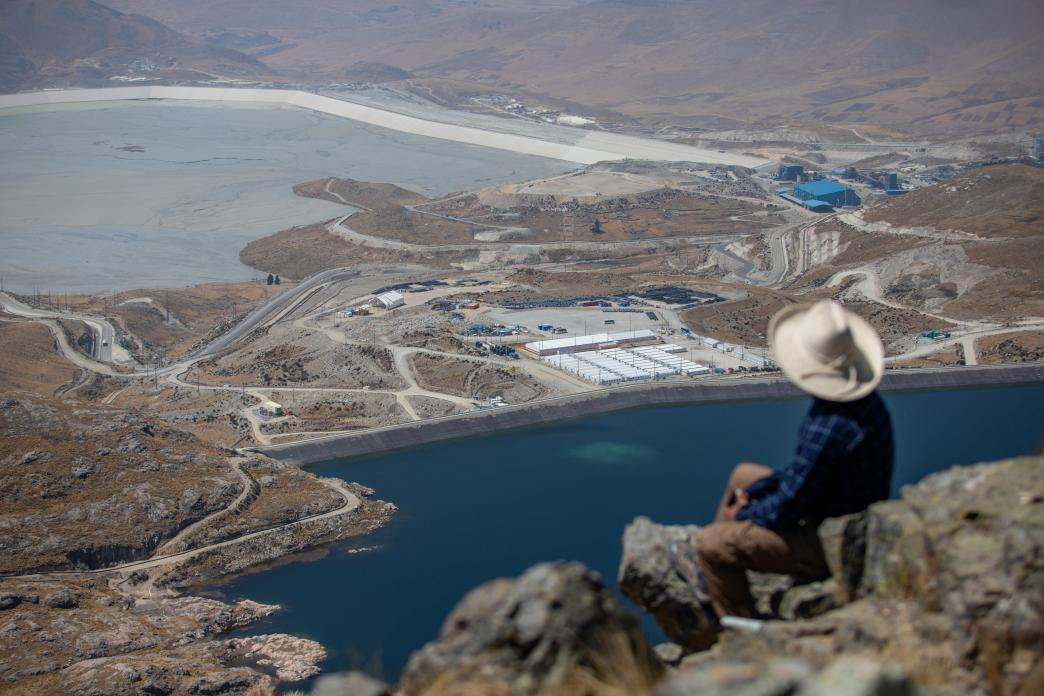
Natural Resource Governance and Energy Transition: Policies and Practice
24 April–23 June 2023
The Natural Resource Governance Institute (NRGI) and NADEL-Center for Development and Cooperation at ETH Zürich will host the “Natural Resource Governance and Energy Transition: Policies and Practice” course online.
This advanced-level multi-stakeholder course is open to exceptional individuals from government, civil society, parliaments, media, international development agencies, and the private sector, as well as academics, researchers, and analysts.
Course duration: 24 April – 23 June 2023
Live instruction weeks: weeks of 24 April, 12 June, and 19 June 2023
For detailed information on mandatory live sessions and self-study phases, refer to the course brochure.
Course fee: CHF 1500
A limited number of scholarships covering either the full course fees or 50% of the course fees are available on a competitive basis for members of government, civil society, parliaments, and the media from selected resource-rich countries: Colombia, Democratic Republic of Congo, Ghana, Guinea, Mexico, Mongolia, Nigeria, Peru, Senegal, Tanzania, Tunisia, and Uganda. Women and gender diverse candidates are particularly encouraged to apply. A restricted number of exceptions from this list may be made for outstanding applicants from other countries.
For detailed information on the application process and dates, refer to the course brochure.
Teaching format: Online
The 2023 course will cover topics including:
- Energy transition-related challenges on natural resource sectors
- The political economy of natural resource extraction
- Discovery and allocation of resource rights and licensing
- Fiscal regimes and taxation
- Managing natural resource revenues and investment
- State-owned companies’ governance
- Socio-environmental impacts and conflicts
- Citizen engagement policies and initiatives
- Local content and local transformation of minerals
- Corruption and accountability
The online advanced course includes self-study material (readings, videos, assignments, and exercises), online forum discussions, interactive live lectures by leading experts, group discussions and skill-building workshops. Participants will also have the possibility to attend supplementary optional sessions and sign-up for online one-on-one clinics with our experts to discuss individual challenges they face in their countries and request advice.
Workload: Approximately 70 hours (live sessions, group discussions, individual assignments, readings, videos, exercises)
The course is delivered online and consists of two phases:
• Introductory week (approx. 10 hours of study):
24 and 25 April, 2pm–4pm CET: introductory live sessions
28 April, 2pm–4pm CET: live group discussion
• Self-study phase (approx. 30 hours of study):
1 May - 2 June: self-study phase
Every Friday 2pm–4pm CET: live group discussions
• Live phase (approx. 30 hours of study):
12 June – 23 June: live sessions
Every day 2pm – 4pm CET: mandatory live sessions
Additional supplementary live sessions are offered at 5pm CET
The course is delivered fully online and in English.
This post originally appeared on the ETH NADEL website.
Photo by Miguel Gutierrez Chero for NRGI
